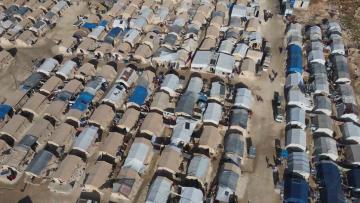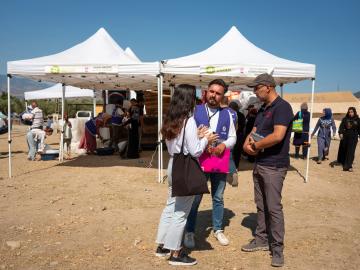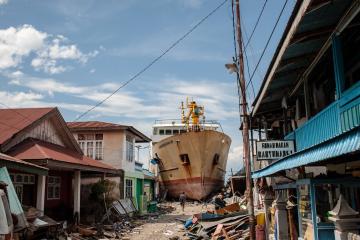The three criteria:
The DEC has three criteria which must be met before we start the process of launching a nationwide fundraising appeal. The severity of the crisis, our member charities’ ability to deliver aid and the level of public awareness are all key factors that are considered.
Some disasters such as earthquakes happen suddenly, and it is quickly clear that the criteria are met. In other cases such as drought, the disaster unfolds over time and it is more difficult to assess if and when all the criteria are met.
The three criteria that must be met to launch an appeal are as follows:
1. The disaster must be on such a scale and of such urgency as to call for swift international humanitarian assistance.
DEC appeals are initiated to provide humanitarian assistance during some of the world’s worst disasters. We know that local responders will be the first ones on the ground providing support, but when dealing with the most severe crises, where communities are overwhelmed and are unable recover without large scale external assistance, they will need help from aid agencies to meet the needs of everyone affected. Often in these cases, governments of affected countries will issue a request for international assistance.
Because every disaster is unique and takes place in a different context, there is no set number of people affected that must be reached in order to meet this criteria, but the numbers are often in the millions.
For example, after the 2023 earthquake that hit Turkey and Syria, 18 million people were left in need of humanitarian assistance. The floods that affected huge areas of Pakistan in 2022 affected one in seven Pakistanis – an estimated 20 million people. The DEC went on to launch appeals for both disasters.
If a disaster is limited to a small or sparsely populated area and has not caused humanitarian need on a large scale, some DEC member charities may respond, alongside other organisations, without a joint appeal being launched. Similarly if the local authorities can meet most of the need alongside aid agencies, there may not be the need for a joint appeal.







